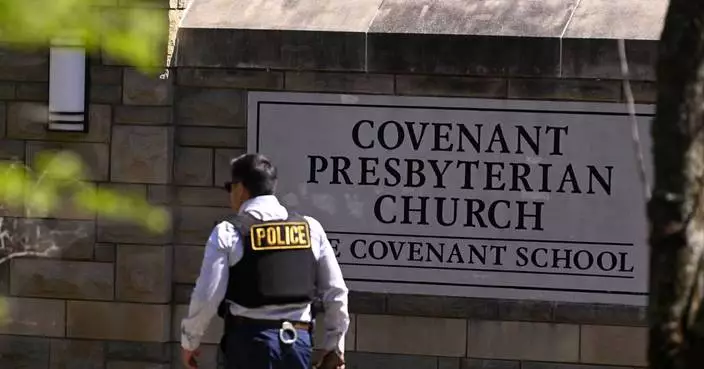MADISON, Wis.--(BUSINESS WIRE)--Mar 31, 2025--
Exact Sciences Corp. (Nasdaq: EXAS), a leading provider of cancer screening and diagnostic tests, today announced the launch of Cologuard Plus ™, the most accurate noninvasive colorectal cancer screening (CRC) test reported in studies to date.* FDA-approved for average-risk patients 45+ and covered by Medicare, the Cologuard Plus test detects 95% of colorectal cancers at 94% specificity in the U.S. screening population. 1† This performance means fewer unnecessary follow-up colonoscopies—up to a 40% reduction compared to the original Cologuard ® test 2 —and greater confidence in results.
This press release features multimedia. View the full release here: https://www.businesswire.com/news/home/20250331788957/en/
Building on the trust and success of Cologuard—used for more than 19 million screenings over the past decade—Cologuard Plus delivers even greater performance while maintaining the convenience of at-home collection. Backed by pivotal data from the 20,000+ person BLUE-C study published in the New England Journal of Medicine, the Cologuard Plus test sets a new standard for noninvasive CRC screening:
“Cologuard Plus builds on the proven performance of Cologuard,” said Jake Orville, Executive Vice President and General Manager, Screening. “Cologuard transformed colorectal cancer screening—driving an estimated 77% of the nationwide increase in CRC screening participation from 2018 to 2021 3 and enabling more than 19 million screenings to date. Cologuard Plus delivers key enhancements to help improve patient care and streamline health care delivery, bringing us closer to eradicating this highly preventable and treatable disease.”
Driving Better Outcomes Through Early Detection and Adherence
Colorectal cancer is highly treatable when caught early—survivable in about 90% of cases. ‡ Yet, nearly 48 million Americans remain unscreened. 4 Routine screening not only detects colorectal cancer when it’s most treatable but also prevents it by identifying precancerous growths so they can be removed. 5
“Early detection helps save lives, and clinicians need highly accurate tests that their patients will complete,” said Dr. Paul Limburg, Chief Medical Officer, Screening. “Cologuard Plus delivers unprecedented performance in a noninvasive test—detecting more cancers while significantly reducing false positives. Combined with strong patient adherence, it gives health care providers confidence that more patients will get screened and receive accurate results to drive better outcomes.”
Effective screening depends on patient adherence, and Cologuard Plus is designed to remove barriers to testing. A large national sample of Cologuard orders shows that 71% of patients complete their test within an average of 28 days, 6 significantly outperforming adherence rates seen in separate meta-analyses for FIT (42%) or colonoscopy referrals (38%). 7
Follow-up adherence is also strong—79% of patients who receive a positive Cologuard result complete a colonoscopy, and 83% of patients complete repeat screening three years later. 8,9 These adherence rates are critical in detecting cancer early and ensuring patients get the care they need.
Like the original Cologuard test, the Cologuard Plus test is shipped directly to a patient’s home and integrates with the ExactNexus ™ technology platform. This platform simplifies ordering, result delivery, and patient navigation—a feature proven to improve test completion rates. 10 As Exact Sciences works to expand patient access to the Cologuard Plus test, the original Cologuard test will remain available. Nationwide, more than 96% of patients aged 45 and older have no out-of-pocket costs for screening with the Cologuard test. 11§
* Based on relative comparison to published reports; not direct evidence from head-to-head comparisons with all other screening tests.
† 94% specificity was determined for adults with no colorectal neoplasia age-weighted to the U.S. population
‡ Based on 5-year survival.
§ Exact Sciences estimate based on historical patient billing as of November 2024. Exceptions for coverage may apply; only patients’ insurers can confirm how the Cologuard test would be covered.
References
About the Cologuard® and Cologuard Plus™ tests
Developed in collaboration with Mayo Clinic, the Cologuard® and Cologuard Plus™ tests are first-line, noninvasive colorectal cancer (CRC) screening options for adults aged 45 or older who are at average risk for the disease. The Cologuard test revolutionized CRC screening by detecting specific DNA markers and blood in stool associated with cancer and precancer, allowing patients to complete the test at home without special preparation or time off. It is included in national screening guidelines from the American Cancer Society (2018) and the U.S. Preventive Services Task Force (2021). Since its inception in 2014, Cologuard has been used to screen for more CRC 19 million times.
Building on this success, the FDA-approved Cologuard Plus test raises the performance bar even further and features novel biomarkers, improved laboratory processes, and enhanced sample stability. The Cologuard Plus test is expected to reduce false positives by more than 40% compared to the original Cologuard test, helping minimize unnecessary follow-up colonoscopies. Both tests demonstrate Exact Sciences’ commitment to improving CRC screening access and outcomes.
About Exact Sciences Corp.
A leading provider of cancer screening and diagnostic tests, Exact Sciences gives patients and health care professionals the clarity needed to take life-changing action earlier. Building on the success of the Cologuard ® and Oncotype ® tests, Exact Sciences is investing in its pipeline to develop innovative solutions for use before, during, and after a cancer diagnosis. For more information, visit ExactSciences.com, follow Exact Sciences on X (formerly known as Twitter) @ExactSciences, or find Exact Sciences on LinkedIn and Facebook.
NOTE: Exact Sciences, Cologuard, and Cologuard Plus are trademarks of Exact Sciences Corporation. The Cologuard test and Cologuard Plus test are only available in the U.S.
Forward-Looking Statement
This news release contains forward-looking statements concerning our expectations, anticipations, intentions, beliefs, or strategies regarding the future. These forward-looking statements are based on assumptions that we have made as of the date hereof and are subject to known and unknown risks and uncertainties that could cause actual results, conditions and events to differ materially from those anticipated.
Therefore, you should not place undue reliance on forward-looking statements. Examples of forward-looking statements include, among others, statements regarding the development and commercialization of the Cologuard Plus test and the performance characteristics and health care benefits of the Cologuard Plus test in a commercial setting, as well as statements regarding the development and commercialization of Exact Sciences’ pipeline tests. Risks and uncertainties that may affect our forward-looking statements are described in the Risk Factors sections of our most recent Annual Report on Form 10-K and any subsequent Quarterly Reports on Form 10-Q, and in our other reports filed with the Securities and Exchange Commission. We undertake no obligation to publicly update any forward-looking statement, whether written or oral, that may be made from time to time, whether as a result of new information, future developments or otherwise.


Cologuard Plus Box





















































